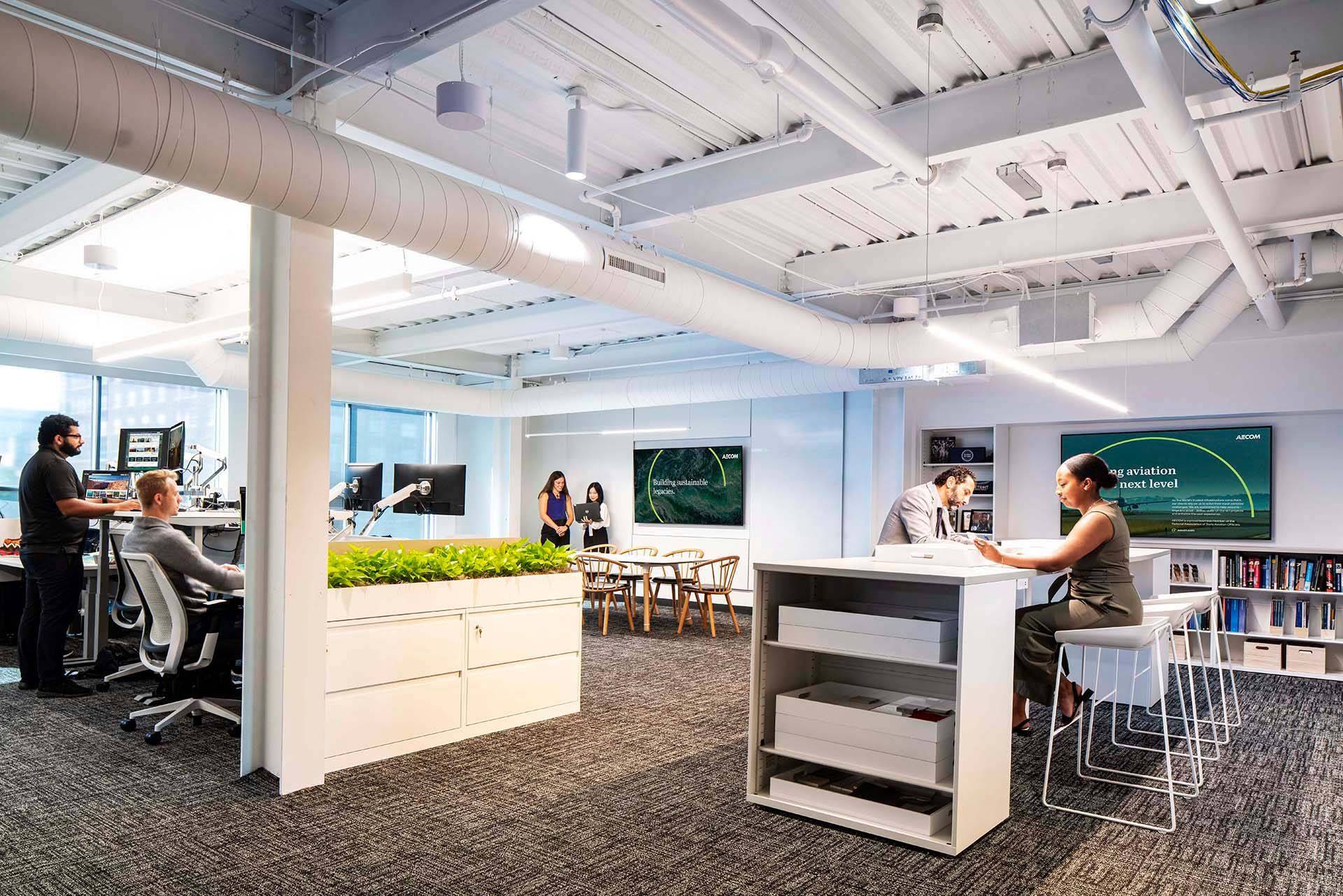
ScopeX™: accelerating carbon reduction to reach net zero, together
ScopeX is both an approach and an ambition – we are changing the way we think and act to include, consider and balance the carbon impact of our work.
Buildings, infrastructure, and construction sectors account for over half of all greenhouse gas emissions released into the atmosphere each year globally. Because of this, the carbon footprint of our projects is orders of magnitude higher than our own operating emissions.
That is why ScopeX is our biggest contribution to help end the climate emergency. This transformational change will take time, resources, and broad collaboration across our industry with our clients and peers. The good news is that we are well on our way with an approach that is people centered, process driven and enabled by digital tools.
Our mission is to embed decarbonization into everything we do for our clients by empowering our practitioners with methods, tools and workflows to enable carbon management.
Centered on people
The foundation of ScopeX is understanding your organization's carbon reduction commitments, challenges, and aspirations. We’re on the same decarbonization journey – what drives you drives us too – so we know the crucial importance of engaging people at all levels internally and across your supply chain to get there.
As we accelerate efforts to incorporate decarbonization into our work via ScopeX, we are increasing the skills needed in our workforce to measure carbon baselines and model reductions. Starting in 2022, we’ve included basic carbon literacy topics in mandatory training for all employees across our organization. This year we’ve expanded our employee upskilling to include webinars and specialized training for client and project managers so they can bring more low carbon planning, design, and construction solutions to you.
More specifically, we’ve developed a 1-hour Carbon 101 training, which has so far reached over 900 people in the organization. And in January 2023, we hosted our first carbon modelling “bootcamp”, a live online 40-hour intensive training course to scale up our carbon modelling capabilities. With hundreds of our staff interested in getting this training, we are currently scaling up our training programs to include on-demand and live training on a broad range of topics related to decarbonization of our work.

Driven by processes
We have established a carbon technical practice group to serve as the hub for our carbon modelers, facilitating knowledge sharing, protocols, methodologies, and best practices. This technical practice group will help with the operationalization of ScopeX throughout our organization and serve as an accelerator for scaling up vitally important decarbonization efforts across our projects.
Our Technical Practice Network, whose purpose is to drive the continuous improvement of technical capabilities across all practice areas of our business, is key to integrating ScopeX into the engineering and environmental solutions we deliver to clients. It is part of our responsibility in delivering the highest quality work product to consider and balance carbon impact.
Enabled by digital tools
ScopeX encompasses all the processes, frameworks, methods, skills, data, and digital tools that we use to reduce carbon in our projects. From a digital perspective, this includes industry-leading global emissions data from verified sources as well as proven decarbonization strategies across a wide variety of assets and geographic locations.
Our tools include industry standard carbon accounting tools and custom carbon modelling and planning tools developed by AECOM. Tools range from basic Excel-based calculators to sophisticated custom built design optioneering tools, capable of modeling cost and carbon scenarios at the keystroke level.
Ultimately, decarbonization is not new to us. What is new is the systematization of our tools and methods through ScopeX to manage carbon, whether we are working on a planning, design, construction or operations and maintenance project, to significantly reduce our global project carbon footprint.